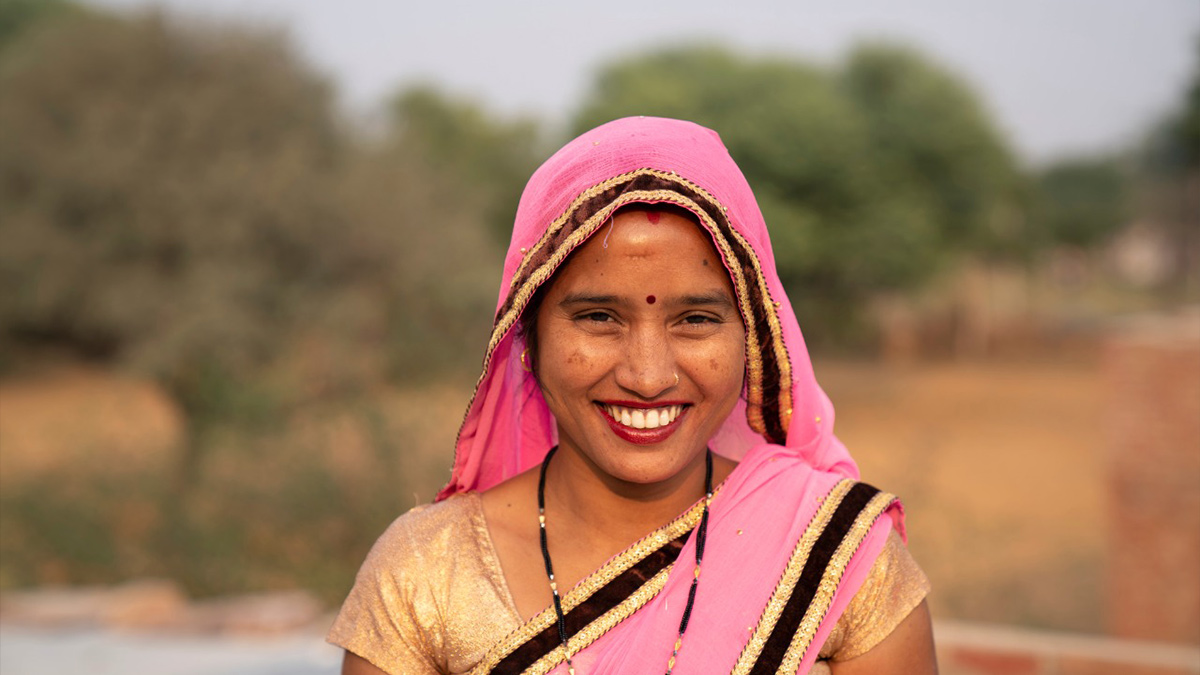I was getting ready to attend a wedding when Harfool ji, the branch manager approached my husband if I would be allowed to go around the village to check looms. My husband steadfastly agreed without hesitation, not knowing I was petrified, for I did not know what he signed me up for. I had been invited to attend this three-day training at Narhet, where details about my so-called new work would then be described to me. I didn’t feel like going to the wedding anymore.
My name is Prem Devi, I’m 30 years old and a mother of three. I’m not a very talkative person and seldom socialize. Being a mother is my pride and joy of living. I bring some extra money into the household by weaving rugs, it is something that I’ve loved practicing for over 7 years now. So, when I heard about the new job role and the training, I was terrified. I didn’t sleep for days. What would I be expected to do? Is it really worth it? Will I be able to do it? Who will take care of my kids? I had many thoughts digging a hole inside me.
The training surprised me in many ways. I made new friends, who were on the same page as I was – absolutely curious and blank. It was then that I realized the purpose of the training. The foundation (JRF), was identifying and developing leaders they called Bunkar Sakhi – a weaver’s companion, who would be responsible for maintaining quality. As I diligently absorbed the training, I knew I had to work hard to prove them right about me. It was probably the first time in years that I felt powerful.
Today, I am responsible for quality maintenance for 100 artisans. As I look back at my life, I comprehend the difference it has made in me and among people around me. I believe that more than quality, it is my relationship with weavers that has strengthened in the last two years. Earlier, the quality supervisors were men. Although extremely capable, it was challenging for women in our village to talk openly about their problems and shortcomings at work. There was always a strong disconnect between the producers and supervisors. With me in the picture, weavers willingly share their problems and we swiftly find solutions too!
I love being a weaver’s friend, a guide – a Bunkar Sakhi, as it has transformed my existence as an individual and changed the course of my life. From someone who hesitated to consciously get out of her house, to visiting every loom in the village every day, I feel empowered. Nothing is impossible.

